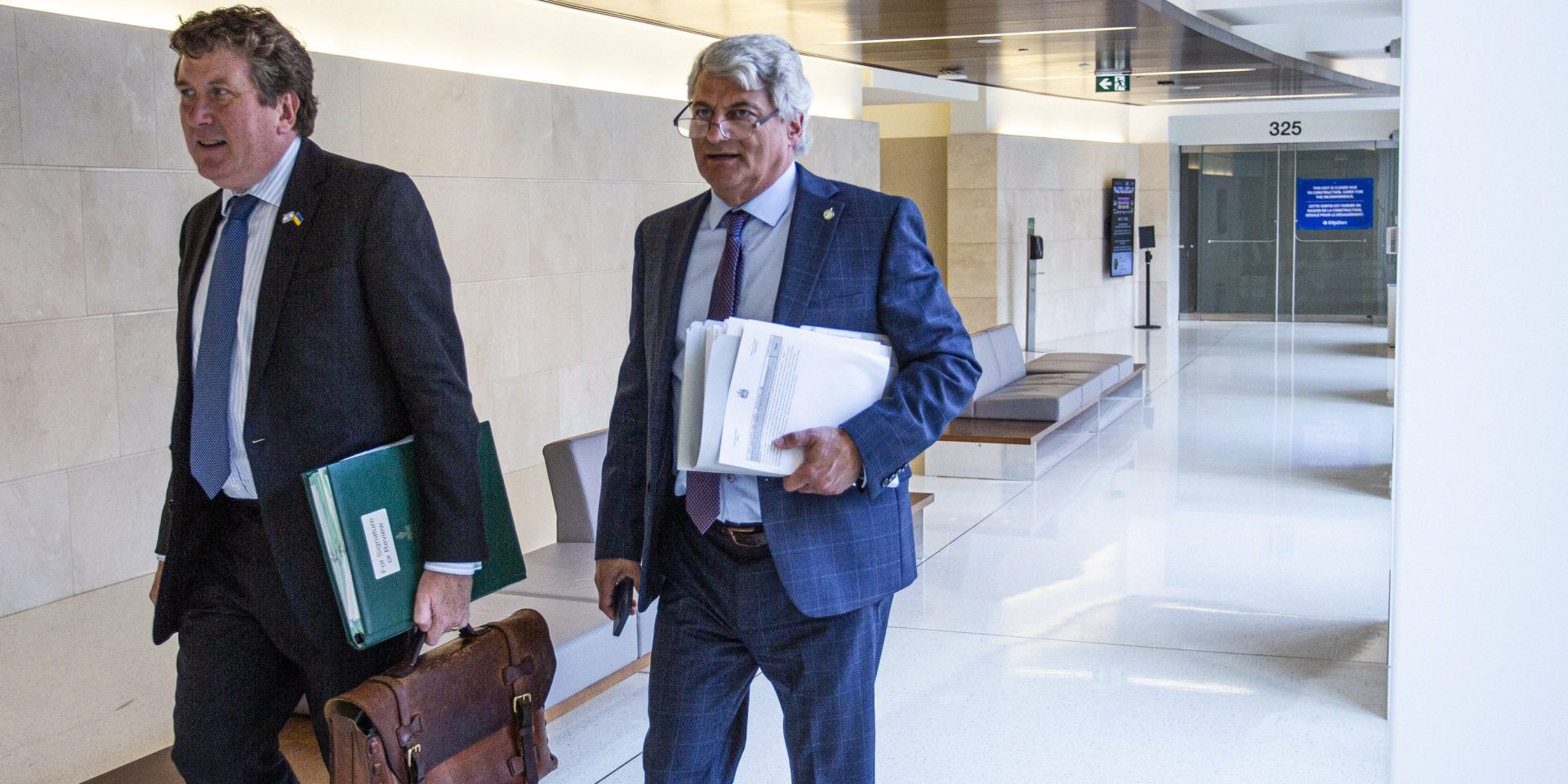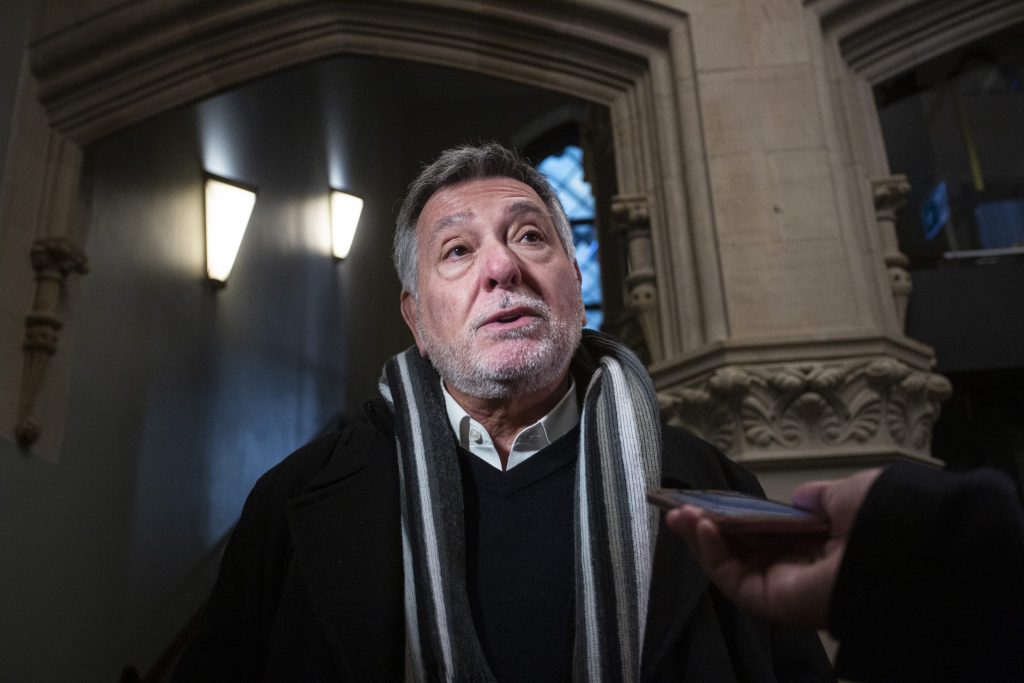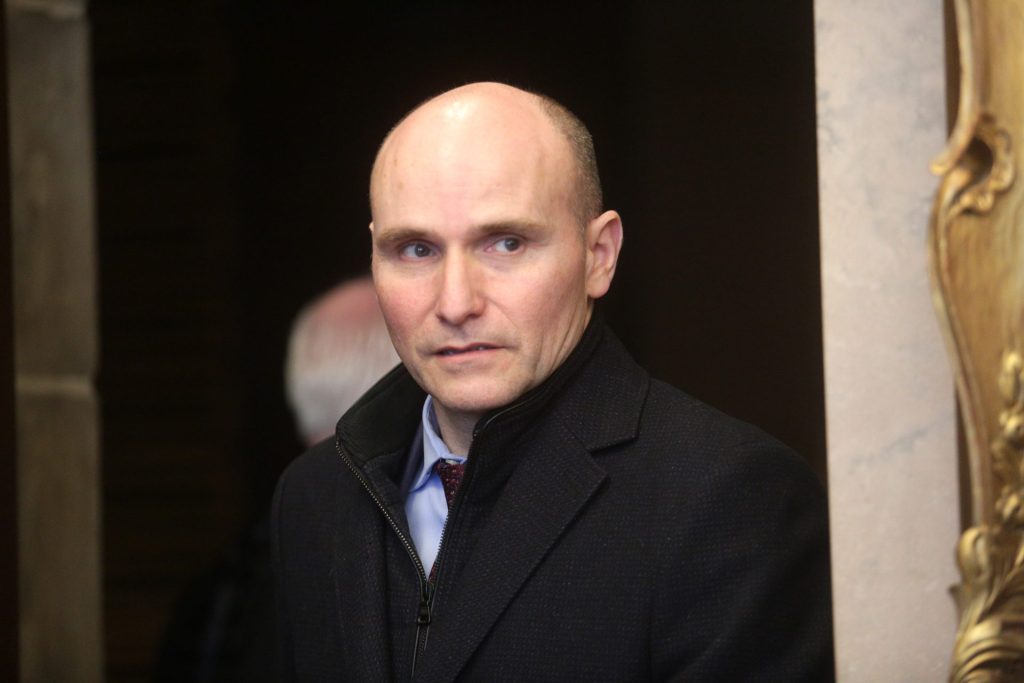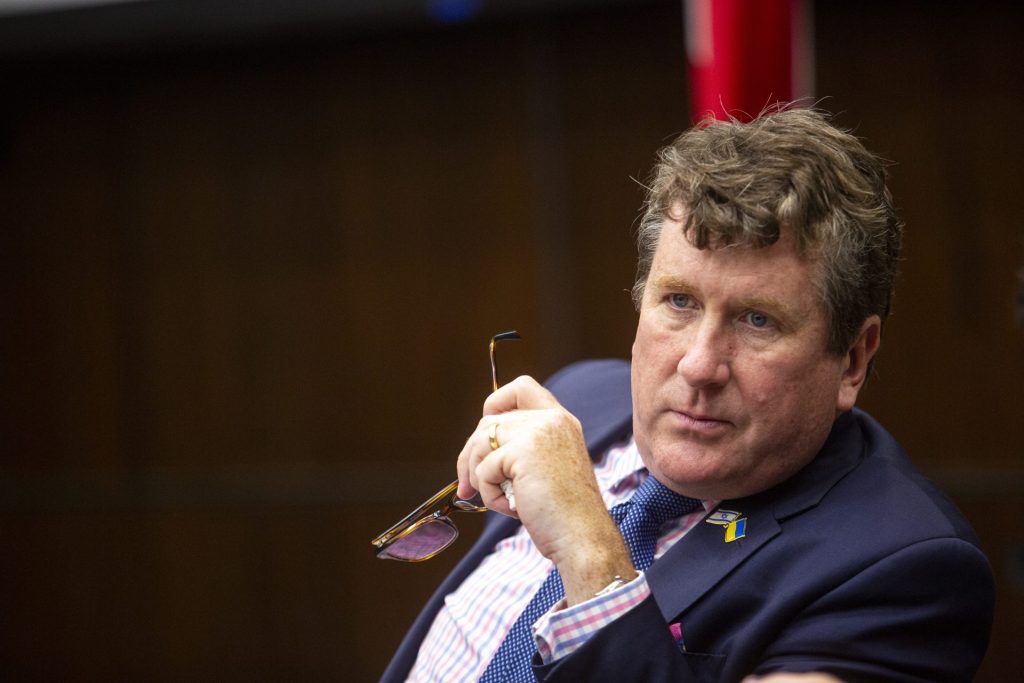Committees opt to hear secret testimony on border security, sexual misconduct in the military

Briefings on border security, sexual misconduct in the military, and more were shielded from public view last week as multiple parliamentary committees opted to hold in-camera sessions despite hearing from key public service officials.
On Sept. 23, the House Defence Committee, chaired by Liberal MP Charles Sousa (Mississauga—Lakeshore, Ont.) opted to go in camera to interview officials from the Department of National Defence’s (DND) Sexual Misconduct Support and Resource Centre about their efforts to support victims of sexual misconduct, though parts of the meeting were conducted in public. The week prior, the same officials appeared before the House Veterans Affairs Committee to discuss the same topic, also behind closed doors.
What exactly was discussed, though, will not be made public.
In-camera sessions mean the meeting is not broadcast or recorded, no members of the public or press can watch it in person, and MPs on the committee are required to keep all of the resulting testimony secret. During the first two weeks of Parliament, at least five committees opted to hold in-camera meetings.
Sousa told The Hill Times that department officials preferred to meet privately to discuss the “sensitive issue.”
But, he added, the committee won’t make a habit of meeting in private.
“As chair, my hope is to have more open discussion, more accountability of the government in terms of what we do,” Sousa said. “Committees exist to provide support and assistance, and hold to account all the issues that are prevalent.”
Emilie Faucher, a media representative for DND’s Sexual Misconduct Support and Resource Centre, said the committee requested the centre’s officials brief committee members on a trauma-informed approach “to help inform how committee procedures and processes might be adapted to better support people taking part in committee meetings.”
She added a similar briefing was given to the Veterans Affairs Committee the week before, and “nothing of public interest was shared.”
Both DND and the Canadian Armed Forces have been gripped by issues surrounding sexual misconduct and harassment in the military in recent years, with a 2022 report by a former Supreme Court justice Louise Arbour recommending sweeping changes to the Canadian Armed Forces, including removing the military’s jurisdiction to investigate and prosecute sexual offences.

Also on Sept. 23, the House Public Safety and National Security Committee heard from officials from Canada Border Services Agency (CBSA), the Department of Public Safety, the RCMP, and from Gerard Peets, deputy commissioner supporting Canada’s new fentanyl czar out of the Privy Council Office, to discuss “border management.”
Border security became a flashpoint in United States-Canada relations since American President Donald Trump re-took the office last fall, and accused Canada of allowing fentanyl and other drugs cross the border. Prime Minister Mark Carney (Nepean, Ont.) has pledged to spend $1.3-billion to bolster border security, including $667.5-million for the RCMP and $355.4-million for the CBSA. Before stepping down as prime minister, Justin Trudeau named Kevin Brosseau as Canada’s fentanyl czar in February 2025.
Liberal MP Jean-Yves Duclos (Québec Centre, Que.) defended the decision to have officials testify in secret, saying it was mostly done for the benefit of new MPs.
“Because this is new for them, this environment made it possible to have more informal conversations with officials,” said Duclos, as previously reported in Politics This Morning.

The Public Accounts committee met privately on Sept. 18 for a briefing with officials from the Canadian Audit and Accountability Foundation. On Sept. 23, committee members were briefed by Auditor General Karen Hogan in an in-camera session. Hogan came back for a public session later that week, discussing her reports from earlier in the summer about tracking office space use in the federal public service.
Conservative MP John Williamson (Saint John—St. Croix, N.B.), who chairs the committee, said Hogan’s in-camera appearance served as “Public Accounts 101” for the benefit of MPs who are new to the committee.
Now, he said, “the work begins.”
The House Human Resources Committee, chaired by Liberal MP Robert Morrissey (Egmont, P.E.I.) also held an in-camera meeting on Sept. 25 for a “briefing on trauma-informed practices,” hearing from a registered psychotherapist.
On Sept. 24, the House Environment Committee was scheduled to hear in-camera testimony from the Impact Assessment Agency and Canada Water Agency. While the meeting was initially listed as private, shortly before it began, it was made public. Liberal MP Angelo Iacono (Alfred-Pellan, Que.) the environment committee’s chair, did not respond to numerous requests for comment.
Both agencies have been in the news recently. As most departments across the government are expected to find savings of 15 per cent over the next three years, leaked texts between staff in Environment Minister Julie Dabrusin’s (Toronto—Danforth, Ont.) office that were accidentally shared with The National Post indicated potential cuts to the water agency.
“There is nowhere else to cut … she could ask for steeper cuts in [Environment and Climate Change Canada] or accept these [Canada Water Agency] cuts and commit to raising her concerns at [Treasury Board]? Their annual budget is so small you can’t escape political consequences with a 15 per cent cut,” one of the texts read.
The Impact Assessment Agency, meanwhile, is responsible for conducting federal reviews of major projects for impacts including on the environment. But, the recently-passed Bill C-5 aims to put “nation-building” projects on an approval fast-track, giving cabinet the power to remove them from the federal environmental and social impact assessment process. Patricia Brady, the agency’s vice-president of strategic policy and programs, told the committee that “nation-building” projects will still have to go through the agency’s review process, so long as the projects qualify for such a review under the agency’s existing criteria.
The Building Canada Act included the creation of the new Major Projects Office, aimed to speed up government approval processes for large infrastructure and natural resource projects. Carney pledged for approvals to come within two years or less, and Brady said her agency is working to hit those targets.

Several other committees, including the House Status of Women; Justice and Human Rights; and Fisheries and Oceans met in-camera during the second week of Parliament’s return, largely discussing committee housekeeping business or reviewing draft reports, which is typical of in-camera sessions. It is not customary for committees to meet in secret to interview officials, though. This week, four committees are set to meet in camera, all to discuss draft reports and committees business.
There are no Standing Orders that govern the circumstances that parliamentary committees can meet in secret, but the House of Commons Procedure and Practice states, “on occasion, a committee may decide to hold an in-camera meeting to deal with administrative matters, to consider a draft report, or to receive a briefing.”
In municipal and provincial levels of government, meeting “in camera” is typically strictly controlled and only reserved for only a few topics, such as human resources and labour matters or legal affairs.
Charlotte Duval-Lantoine is vice-president of Ottawa operations and a fellow at the Canadian Global Affairs Institute where she researches military culture. She said committees meeting in private is a worrisome trend, but one that isn’t new.
Committees should publicly discuss matters of public interest, she said, including sexual misconduct in the military.
“It goes against the role of the parliamentary committees, which at least to me, is to study publicly, and hold accountable, if necessary, officials and witnesses, on issues of national interest,” she said in an interview. “That should give us pause.”
DND, in particular, is already “a big black box for most people,” she said, “but now something as pressing as sexual misconduct, unless they were talking about a specific case, it was weird to see those things not available to the public.”
Duval-Lantoine noted the department and the CAF are set to receive a funding influx as Carney aims to fulfill a promise of boosting military-related spending up to five per cent of Canada’s GDP in the coming years.
“Having this move toward more in-camera conversation, at a time when it’s receiving more taxpayer money … I don’t really like it.”
mglass@hilltimes.com
The Hill Times






 LICENSING
LICENSING PODCAST
PODCAST ALERTS
ALERTS













